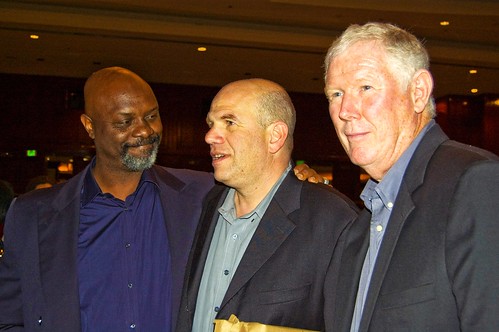Dark Matter 101, an online journal of cultural criticism based in Britain, has released a special Issue about The Wire.
Here is a taste from Ash Sharma's introductory article:
I definitely invite you to check the other articles (one on Bubbbles and intertextual space), post some comments here and there, and keep the conversation going.
Here is a taste from Ash Sharma's introductory article:
Although racism is endemic to neoliberal governmentality, The Wire recognises that anti-racism is hegemonic now. This is no mere superstructural or ideological rhetoric, but present, if unevenly, in the discourses and practices of institutions and society more generally. If in the analysis of race we examine the representations of the black characters in the series we get very quickly get caught in an undecidable bind: arguably the series shows a diverse and complex range of African-American characters, yet the depictions are reducible racial stereotypes (positive or negative). The limitations with an analysis of the politics of representation is that it remains confined to a struggle over media representation. In this approach, television series are analysed as texts that are politically interpreted in isolation of the matrix of social affect, information and desire. ‘Realism’ and ‘authenticity’ become the only sites for debates over racial meaning and power. The affective dimension of race in the circuits of knowledge and information across the series and audiences; for instance, in the grain of the voices of the Baltimore accents or in the coded communication of the street corners, need analysis.Ash's work is some pretty heavy lifting for those not versed in cultural studies and the jargon of that tribe, but it's well worth the effort. I appreciated his attempts to move beyond a duality where The Wire is either a racist appropriation of urban black life featuring modern minstrelsy or it's an authentic view of West Baltimore life, told to a part of America that never sets foot there. Instead, as Ash argues, race is located "within the structures of the series" to "understand the racial logics of neoliberalism and contemporary institutions of power and control." His essay and others in the journal constantly ask (after Sudhir Venkatesh's Freakonomics interviews with 'Real Thugs'): "If the gangs were white, what would be different about the show?"
I definitely invite you to check the other articles (one on Bubbbles and intertextual space), post some comments here and there, and keep the conversation going.
 From President Barack Obama to
From President Barack Obama to  The NYTimes
The NYTimes 








